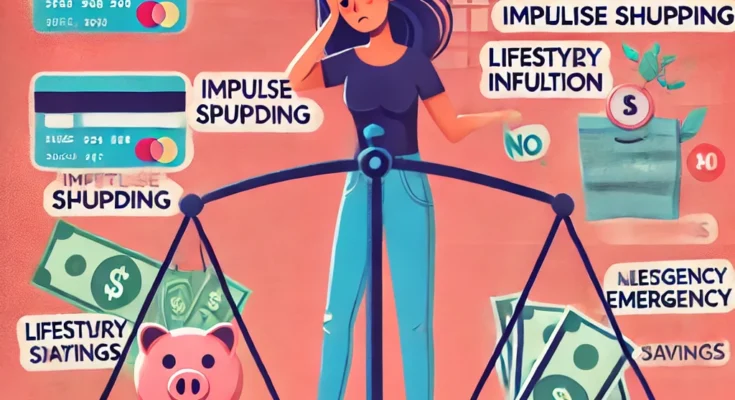Many people dream of achieving financial freedom, but only a few succeed. Why? Poor money habits often stand in the way. If you want to build wealth, you must identify and eliminate financial mistakes that keep you from reaching your goals.
In this article, we’ll highlight five common financial pitfalls and provide practical steps to help you overcome them. By developing smart money habits, you can secure a stable and prosperous future.
1. Not Budgeting or Tracking Expenses
One of the biggest financial mistakes is failing to budget or track your expenses. Without a clear understanding of where your money goes, you may overspend and struggle to save.
How to Fix It:
- Track your expenses for a month and categorize them.
- Identify areas where you can cut back.
- Create a budget that prioritizes essentials, savings, and investments.
- Regularly review and adjust your budget to stay on track.
2. Relying on High-Interest Debt
Credit cards and loans can be useful, but carrying high-interest debt can trap you in a cycle of financial stress. Making only the minimum payments keeps you stuck in debt longer, costing you more in interest.
How to Fix It:
- Pay off high-interest debt as quickly as possible.
- Consider consolidating your debt with a lower-interest loan.
- Avoid taking on unnecessary debt for non-essential purchases.
3. Impulse Buying & Emotional Spending
Emotional spending—whether it’s retail therapy or impulsive purchases—can quickly drain your finances. Buying things on a whim often leads to regret and disrupts your budget.
How to Fix It:
- Implement a 24-hour waiting rule before making non-essential purchases.
- Differentiate between needs and wants.
- Find healthier ways to cope with emotions, such as exercising or journaling.
4. Lifestyle Inflation
As your income grows, it’s tempting to upgrade your lifestyle. However, increasing expenses along with earnings can prevent you from accumulating wealth.
How to Fix It:
- Resist the urge to upgrade your lifestyle immediately after a raise.
- Allocate extra income towards savings, investments, or debt repayment.
- Live below your means to achieve long-term financial freedom.
5. Ignoring Emergency Savings
Unexpected expenses—like medical bills, car repairs, or job loss—can derail your financial stability if you don’t have an emergency fund. Without savings, you may rely on credit cards and fall into debt.
How to Fix It:
- Aim to save 3-6 months’ worth of living expenses.
- Set up automatic transfers to a dedicated savings account.
- Start small and increase savings over time.
Case Study: How Nancy Turned Her Finances Around
Nancy struggled with debt, overspending, and little savings despite having a good salary. She decided to take control of her finances by:
- Tracking her spending and identifying unnecessary expenses.
- Paying off credit card debt aggressively.
- Automating her savings for consistency.
- Investing her extra income instead of upgrading her lifestyle.
Over time, Nancy built financial security and achieved her wealth goals. Her journey proves that small, consistent changes can lead to financial success.
Key Takeaways
✅ Create and follow a budget to track income and expenses.
✅ Pay off high-interest debt quickly and avoid unnecessary borrowing.
✅ Curb impulse spending by implementing a waiting period before purchases.
✅ Avoid lifestyle inflation—direct extra income towards savings and investments.
✅ Build an emergency fund with automated savings for financial security.
Conclusion
Achieving financial freedom isn’t about making drastic changes overnight. Instead, it’s about adopting smart money habits and staying consistent.
Start by creating a budget, paying down debt, and building an emergency fund. As your income increases, avoid lifestyle inflation and focus on long-term wealth-building strategies.
Remember, financial success is a journey. The small decisions you make today will shape your future wealth. Stay disciplined, and you’ll be amazed at how much progress you can achieve.
Take action now—your future self will thank you!




